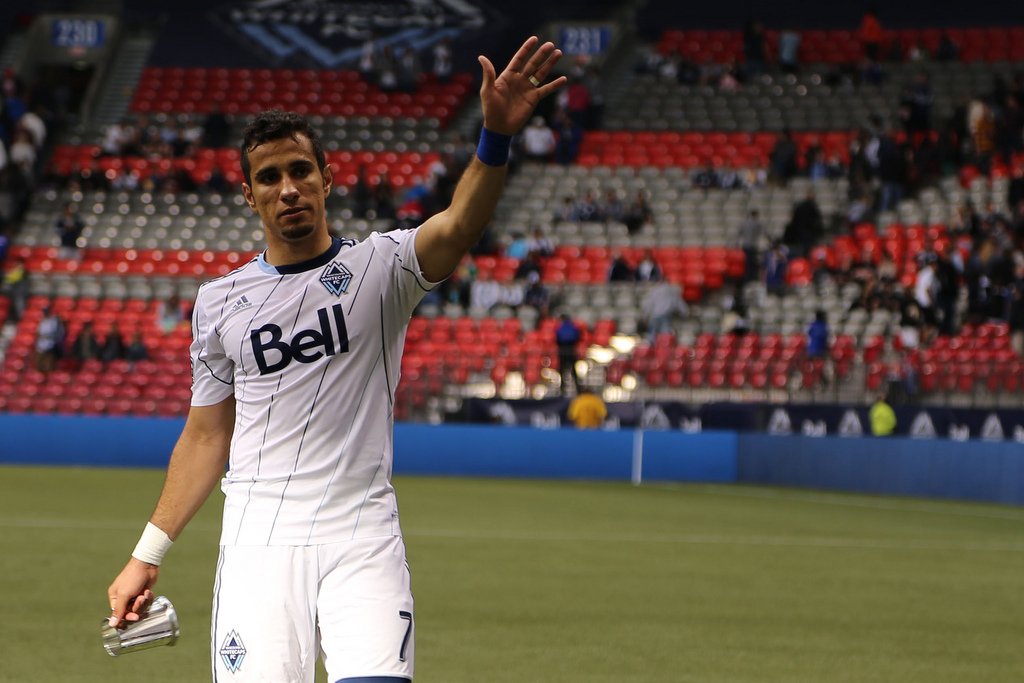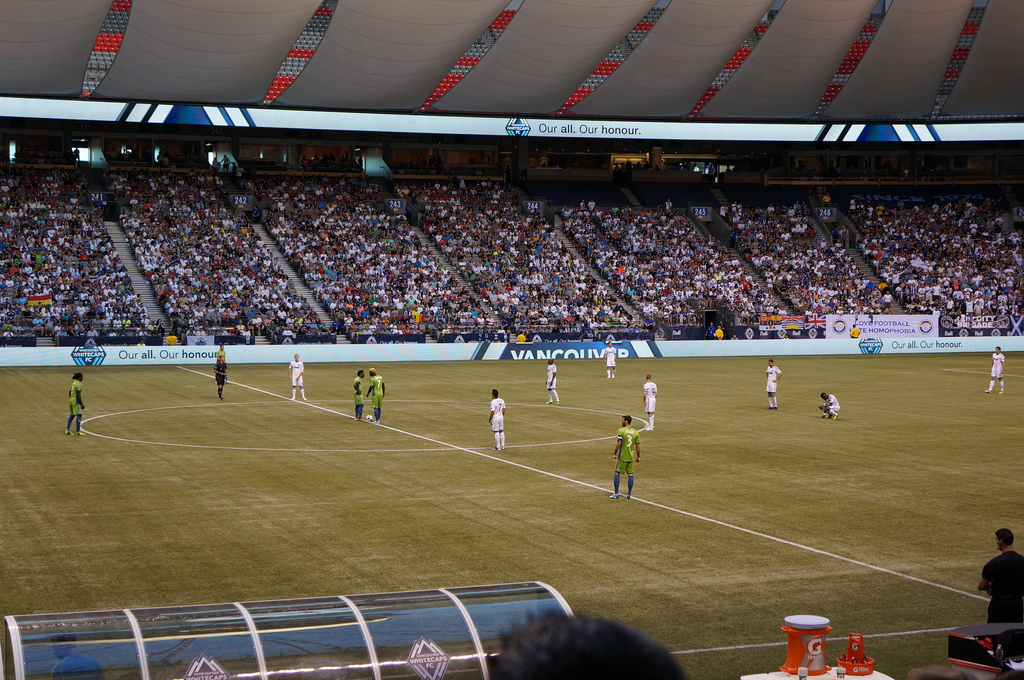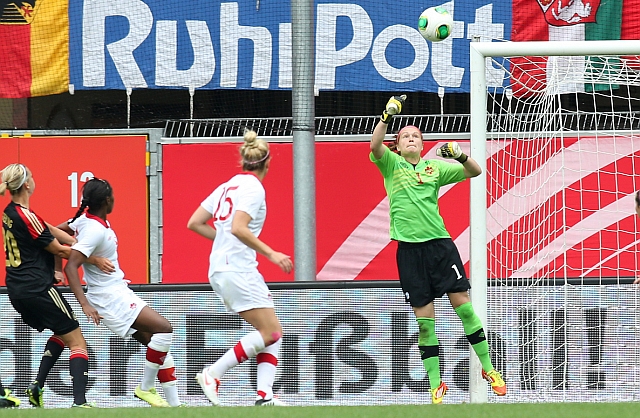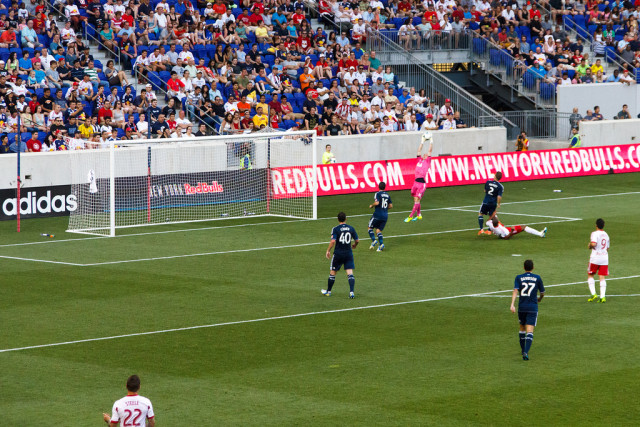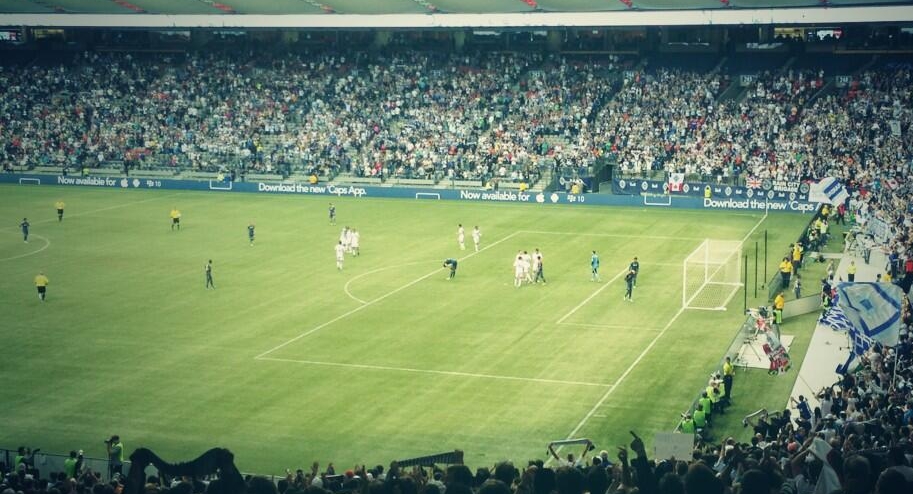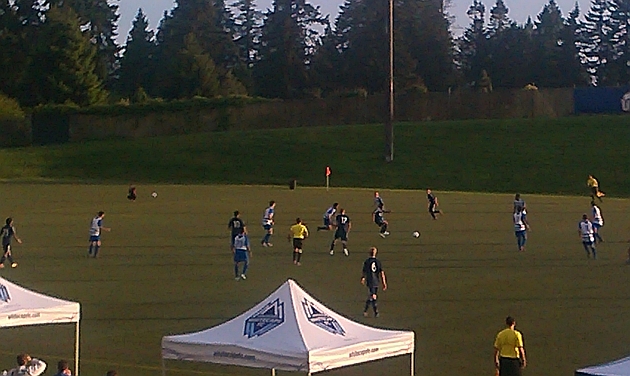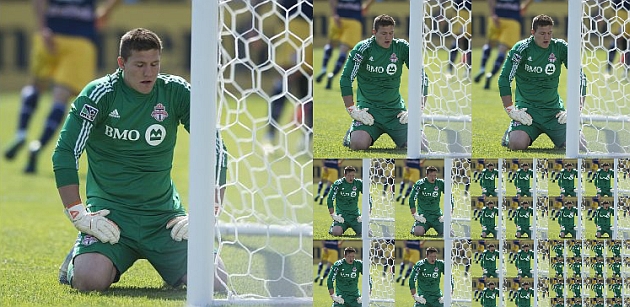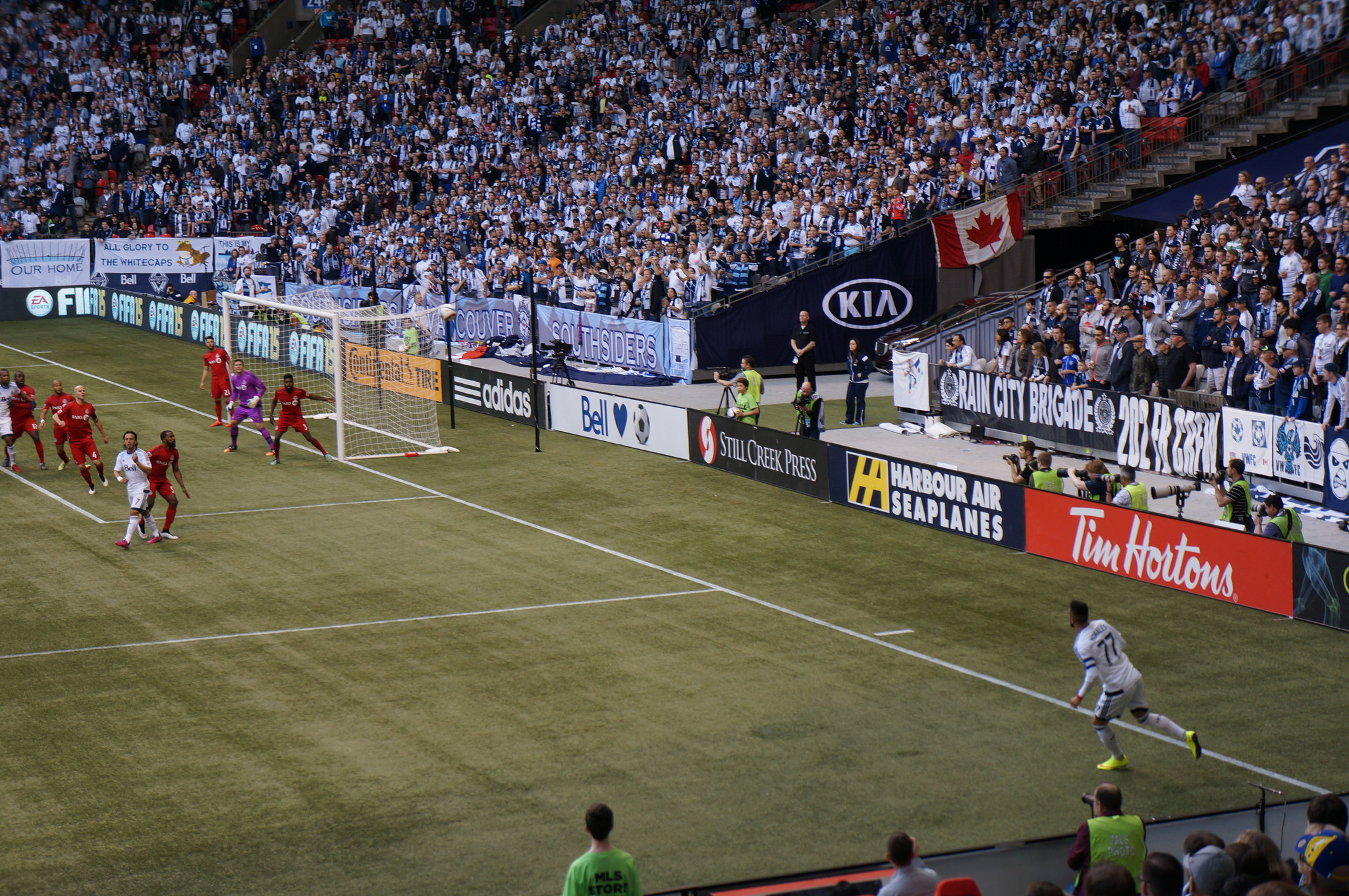
Captain Pedro Morales takes a corner in the Whitecaps’ home opener against Toronto FC. (Photo RosieTulips/Flickr)
During the off-season, a soccer team doesn’t exist in any of the important ways, like the way it does during the ebb and flow of a game. The pre-season is used to prepare and predict what the team will be like when it exists again for real; come the opening whistle it blips back into the physical plane. With some new limbs and some limbs missing, it lumbers into motion and begins to walk and pass and try to score a goal, just like it did the last time, but for the first time as a new group.
The Vancouver Whitecaps figured this out early and had a good first half in its opener Saturday against Toronto FC. Then Toronto woke up, and they had a very good second half en route to a 3-1 win.
Two of the biggest new faces introduced to the Caps this year, and the only two new players in the starting lineup, were Pa-Modou Kah, the centre-back picked up from Portland, and Octavio Rivero, the Uruguayan striker brought in to fill the fans’ hunger for a goal-scorer and whose predecessor had not quite managed to satisfy.
Their integration was a success, with Kah picking out the new central striker from almost 30 yards away that released him on a run that culminated in Rivero beating Joseph Bendik on his right side. Rivero basked in the moment, getting a chance to make his mark on his debut early, like Sebastien Le Toux in 2012.
By contrast, Toronto looked nervous, bending under the expectations that come with their wage bill. When a ball from Michael Bradley deflected through the box to their winter signing Sebastien Giovinco, the new man turned at the same rate as everyone around him, a second behind the ball like he was surprised to be alone with it, before putting a blistering shot just wide on the 17th minute.
But even without cohesion, individual players can still shine. Jozy Altidore, fresh from a disappointing term with Sunderland in the English Premier League, was given a gift of a Giovinco ball across the carpet and, as though through muscle memory, deftly turned past the goalkeeper.
The Caps stayed good for the rest of the period and were more aggressive at finding space to exploit, but didn’t convert it to goals. Kekuta Manneh, on 39 minutes, couldn’t work the same magic 1-on-1 with Bendik that Rivero had earlier, and Vancouver went into the tunnel on even terms with a Toronto side that hadn’t figured out how to make all of its expensive pieces snap together.
But you can’t count on your opponent’s ill fortune. The Toronto that came out of the tunnel was more determined and less nervous, converting that with a smooth run from Justin Morrow that bamboozled Vancouver defender Stephen Beitashour and put him in a position to pick out Robbie Findley.
It was now Toronto, not Vancouver, that was striding past back lines and executing smart runs. On 62 minutes, there was a strange crossover that looked almost like a Whitecap stole the ball from another; on 83 minutes Pedro Morales recovered the ball from the defense, but through fatigue couldn’t find an outlet before being overrun in his own half.
The penalty that ended the team’s chances was cruel, although not undeserved. After Gershon Koffie had a foul shout at the other end, Kah, fulfilling jitters from fans that don’t fondly recall his performance in Portland, clattered into Altidore on 89 minutes. If he touched the ball, he launched his frame into the air so clumsily that nobody could really argue.
The 2015 Whitecaps exist now, and the result was promising, if not disappointing. They lacked the ability to control Toronto’s firepower, when it woke up, and with more time for Kah and Kendall Waston to work together and more time for Rivero to earn the confidence of fans in a way past strikers couldn’t, they might be able to assert themselves down the road. It begins now.
Stats after the jump.
